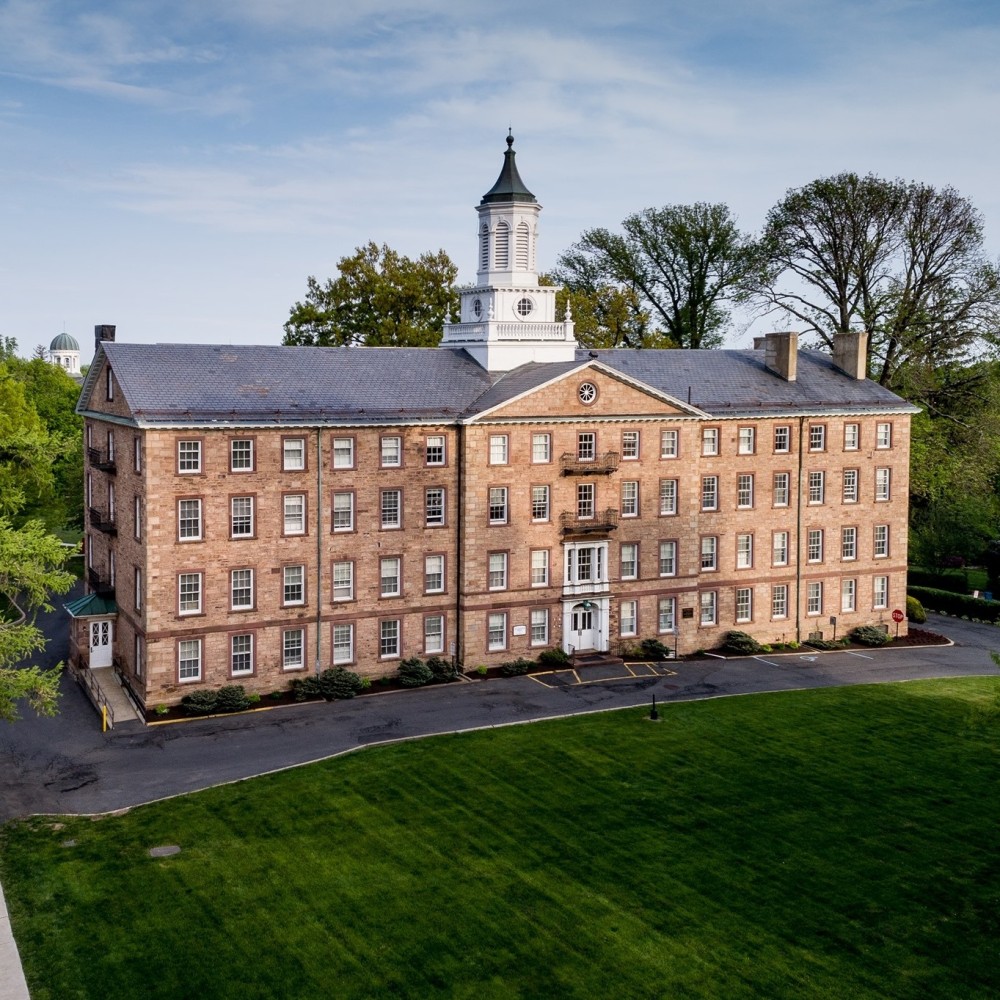Princeton Seminary alumni, students aim to remove chairman for predatory prison business

Erich Kussman grew up breaking into homes in Plainfield, New Jersey, to steal food. His single mother was addicted to drugs. He began selling drugs himself and landed in jail in 2002 after stabbing a man with a box cutter. During his 12-year sentence, Kussman became a Christian.
Today, Kussman is the pastor of St. Bartholomew Lutheran Church in Trenton, New Jersey, and a graduate of Princeton Theological Seminary.
“That was an institution that gave me a second chance when nobody else was,” he said.
Which is why, when fellow alum and New Jersey pastor Amos Caley started asking people if they were aware of the seminary trustee board chairman’s ties to a company profiting from the prison industry, Kussman supported the effort to demand his removal.
Chairman Michael Fisch’s private equity firm American Securities owns ViaPath (formerly Global Tel Link), a prison telecommunications company that charges incarcerated people and their families as much as $15 for 15-minute phone calls to stay connected with their families, lawyers, and anyone outside the prison walls. Inmates in New Jersey who work often earn only $1.21 per day in minimum wage.
Caley stumbled upon the connection while watching a video announcing Princeton Theological Seminary’s first Black president, Jonathan Walton. Fisch announced Walton’s appointment.
“I knew who Michael Fisch was, but I had no idea he was associated with the seminary,” said Caley, who as a pastor works with people in prison or coming home from prison. “It was shocking.”
Kussman and Caley helped organize nearly 350 Princeton Theological Seminary students and alumni to sign a letter to Walton and the trustee board in March. They are demanding Fisch’s removal and greater accountability about how the leadership’s business practices match with the seminary’s values.
“Everything that man [Fisch] represents is antithetical to the seminary and the gospel,” Kussman said. “It’s like taking ice cream and horse manure. You know, the ice cream is not gonna taste good anymore.”
On its website ViaPath says its mission is to “help break the cycle of incarceration through transformative technology and services for incarcerated individuals, their support network, correctional agencies, and returning citizens.”
But Princeton alumni and students, many who have worked with imprisoned people and their families as chaplains, social workers, and counselors, say companies like ViaPath are predatory. Their letter cites research from the Ella Baker Center, an Oakland-based nonprofit that aims to shift resources away from prisons, which finds that more than one-third of all families who choose to remain connected with an incarcerated loved one accrue debt.
“I understand what it means when you might not be able to call your kid for his birthday, you know, because it costs so much,” said Kussman, who had three sons when he went to jail at age 22. “That relationship between families is important for rehabilitation and redemption.”
Worth Rises, a national advocacy organization working to “dismantle the prison industry,” helped the Princeton alumni research Fisch and draft their goals. In 2020, a similar campaign co-led by Worth Rises forced the removal of NBA team owner Tom Gores from the board of the Los Angeles County Museum of Art for his investment firm’s ownership of a prison telephone company.
Bianca Tylek, the executive director of Worth Rises, advises people to follow a playbook to hold their institutions accountable: organize your folks around a common goal, make sure you include people who are directly impacted, issue your demand, and then escalate.
“Our strategy is to head off every exit and say everyone has a responsibility,” Tylek said. “We need the predatory players out.”
The PTS alumni letter comes amid a period of reforms at the seminary. In 2016, PTS announced its plans to “examine the institution’s historic connections to slavery,” saying that “a critical reckoning” with the seminary’s past is necessary to restore the institution’s relationship to “God and the world God so loves.”
Last year, the board voted to remove the name of the slaveholder and anti-abolitionist Samuel Miller from the seminary chapel. The name change came after the Association of Black Seminarians and other student groups protested on campus. In 2018, Kussman was involved in a successful effort to replace Aramark, the largest prison food provider, which had been contracted with the school cafeteria.
Walton became the seminary’s first Black president on January 1. He responded to the alumni letter with a statement: “I recognize the complicated web of injustice we face in our society and believe that Princeton Theological Seminary can and should be a leader in addressing injustice in all its forms. As an institution we must continue to strive for greater transparency and ethical responsibility including shared governance.”
He also pledged “ongoing engagement” with the seminary community “across various issues with deeper reflection and action.”
A spokesperson for Fisch and American Securities declined to comment.





